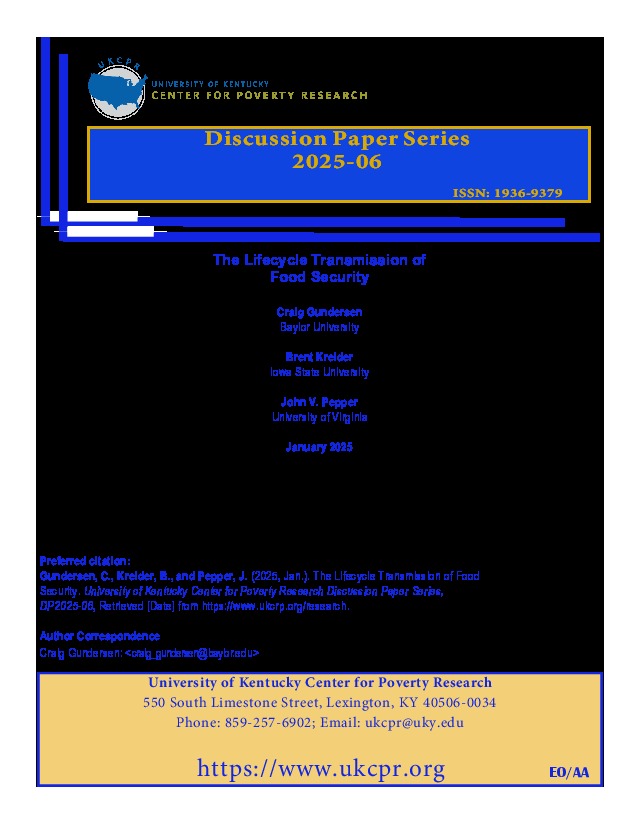Using data from the Panel Study of Income Dynamics, we provide the first evidence on the causal transmission of food security from childhood to young adulthood. A causal assessment is complicated by unobserved factors that jointly influence food security status as a child and subsequently as a young adult. Using nonparametric partial identification methods, we find that growing up in a food secure household increases the chances of being food secure as a young adult by between 5.7 and 10.5 percentage points, or at least 7.9%. Among nonwhites, we bound this effect to lie within the narrow range of 5.9 and 6.7 percentage points, or at least 8.6%.
Research
PSIDPDF Thumbnail
